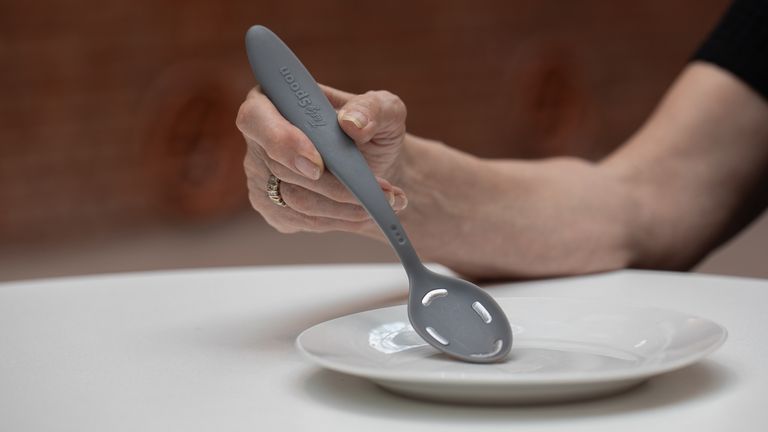A man who revealed how he has only eaten toast for the past five years as he can no longer taste things has helped inspire a high-tech spoon which enhances flavours for dementia sufferers.
The device, known as Tasty Spoon, looks like a normal one but it uses electrostimulation to enhance the flavour of foods for patients experiencing a loss of taste.
People with dementia often have issues with eating and drinking due to symptoms like memory loss, not being able to recognise food, and a decreased sense of smell and taste.
This can lead to patient’s losing weight and muscle strength.
According to researchers, the spoon can help users differentiate between foods.
Dr Christian Morgner, of the University of Sheffield’s management school, is leading the project’s development with Healthy Lifespan Institute.
He said a loss of taste “can remove the enjoyment of food” – which, in turn, impacts wellbeing.
“This is especially prevalent in patients who live alone or in public care homes with more generalised nutrition,” he said.
“In a heartfelt disclosure, an individual shared that he only ate toast for the past five years, as to him there’s no difference between toast and a regular Sunday roast.”
There are about 944,000 people in the UK with dementia, with one in 11 over the age of 65 suffering from the disease.
The Tasty Spoon project has partnered with Alzheimer’s Society’s Accelerator Programme, which is supporting bringing new products to market that help people living with dementia.
Simon Lord, head of innovation at Alzheimer’s Society, said: “A healthy, balanced diet can help improve a person’s quality of life.
“However, common symptoms of dementia, such as memory loss and difficulties with thinking and problem-solving, can make it more difficult to eat and drink well.
“That’s why we’re excited about the possibility Tasty Spoon presents in improving the taste and enjoyment of food and subsequently improving the health and nutrition of people living with dementia.
“Innovations like this are vital as they focus on enriching daily experiences and improving health and well-being.”
